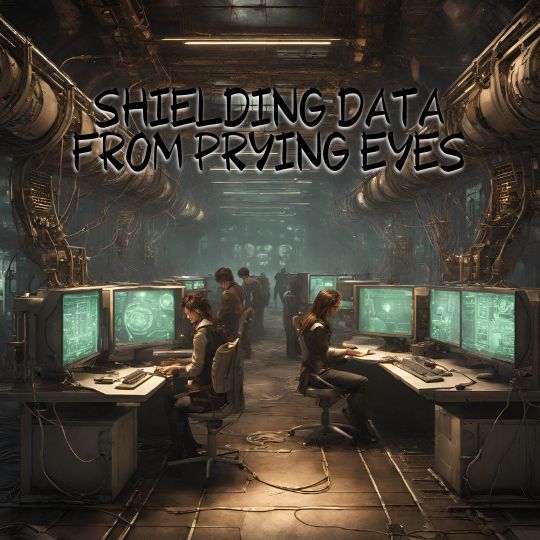A new dawn in crime-busting has been heralded by a series of high-profile dark web arrests, most notably the colossal operation that dismantled one of internet’s most notorious black markets – the Monopoly Market. Let’s dive into the intriguing saga of law enforcement’s newfound courage in battling the dark universe of online crime.
A Beacon Of Light Clouded By Shadows
The colossal international initiative that made nearly 300 arrests, primarily in the United States, has shed dramatic light on the ominous world of dark web drug trafficking.
• Monopoly Market: At the Heart of the Darkness
The operation focused on the infamous Monopoly Market, a dystopian online bazaar for drugs and other illegal commodities. Disconcerting is the fact that this action is rated as the largest operation of its ilk by law enforcement.
• The Synthetic Opioids Scourge
The majority of the arrests happened in the United States, currently reeling from a crisis of widespread overdoses caused predominantly by synthetic opioids, particularly fentanyl. This grim scenario has led U.S. Attorney General Merrick Garland to issue a stern warning to these digital criminals: there’s nowhere to hide, even in the darkest corners of the internet.
A Stitch In Time Saves Nine
Law enforcement authorities gained critical leads from local police investigating overdose deaths linked to dark web purchases. This led to an unprecedented endeavor by the FBI to visit dark web buyers and educate them about the potentially fatal ramifications of their clandestine purchases.
United We Stand, Divided We Fall
The operation brought together the police forces from the United States, United Kingdom, Germany, and other countries, with Europol serving as the keystone agency in this multinational collaboration, reaffirming the power of global unity in combating dark web crime.
The Spoils of Victory
The operation’s success was further amplified by a hefty seizure of assets, including $53.4 million in cash and digital currencies, 850 kilograms of drugs, and 117 firearms. Furthermore, multiple top sellers in the Netherlands were apprehended, thanks to the concerted efforts of the Dutch national police’s Cyber Enabled Crime Team and Europol.
Fishing in the Dark Isn’t Always Fun
The crackdown on dark web drug trafficking necessitates the persistent commitment of law enforcement agencies worldwide to their mission of bringing these wrongdoers to justice. Despite their success, these agencies must continue their relentless pursuit to effectively put an end to these nefarious activities and make the internet a safer place for everyone.
But the problem isn’t just limited to the US or UK, other countries are finding the dark web to be a source of troublesome activity, worth untold millions. For instance, in South Australia, a 25-year-old man from Adelaide Hills has been charged with drug trafficking and money laundering offenses on the dark web. The police allege that he operated multiple vendor profiles on the dark web, selling various drugs, including the highly toxic synthetic opioid “nitazene.” Although the seized nitazene is yet to be tested, approximately 5 kilograms were found, believed to be the largest seizure of its kind in Australia. The police, however, found no direct link between the vendor and a death related to the drug. The operation also led to the confiscation of around $1.5 million in cryptocurrency, cash, drugs, and electronic devices. The accused has been remanded in custody and will face court at a later date.
Meanwhile, Finnish law enforcement authorities have successfully taken down PIILOPUOTI, a dark web marketplace specializing in illegal narcotics trade since May 2022. The site, operating as a hidden service in the encrypted TOR network, facilitated anonymous criminal activities such as drug trade. Finnish Customs, in coordination with international partners from Germany and Lithuania, Europol, Eurojust, and Romanian cybersecurity firm Bitdefender, conducted the operation. The move is part of a broader effort by law enforcement agencies to dismantle darknet marketplaces, emphasizing the collaboration between public and private sectors to disrupt illegal online activities.
FAQs:
1. What is the dark web?
The dark web, accessible only through specialized software, is a heavily encrypted network often associated with illegal activities.
2. What is the Monopoly Market?
The Monopoly Market is a significant illicit platform on the dark web, notorious for facilitating the sale of drugs and other illegal goods.
3. How severe is the synthetic opioid crisis in the U.S.?
Synthetic opioids, especially fentanyl, are responsible for more deaths annually in the U.S. than the total loss in the Vietnam, Iraq, and Afghanistan Wars combined.
4. What was seized in this latest dark web operation?
Authorities confiscated assets worth $53.4 million in cash and digital currencies, 850 kilograms of drugs, and 117 firearms.
5. What role did international law enforcement agencies play?
This operation was a joint effort involving law enforcement authorities from various countries, including the U.S., U.K., and Germany, with Europol serving as the coordinating agency. The problem is just as present in Australia and Finland, among other G30 countries as well.
The successful crackdown on the darkweb’s Monopoly Market stands as a testimony to what can be achieved through international collaboration and unwavering dedication. However, the fight to cleanse the dark corners of the internet is far from over and requires continued global cooperation. The dark web may be a challenge, but as Albert Einstein once said, “In the middle of difficulty, there lies opportunity.” Crucially, the opportunity here is to create a safer digital world for every netizen. With every dark web arrest, we inch closer to this lofty goal.
Sources:
https://thehackernews.com/2023/09/finnish-authorities-dismantle-notorious.html
https://theowp.org/global-crackdown-on-dark-web-drug-market-300-arrests-and-53-million-seized/
https://www.msn.com/en-au/money/markets/sa-police-seize-15-million-in-crypto-following-arrest-of-alleged-dark-web-drug-trafficker/ar-AA1hILVn




